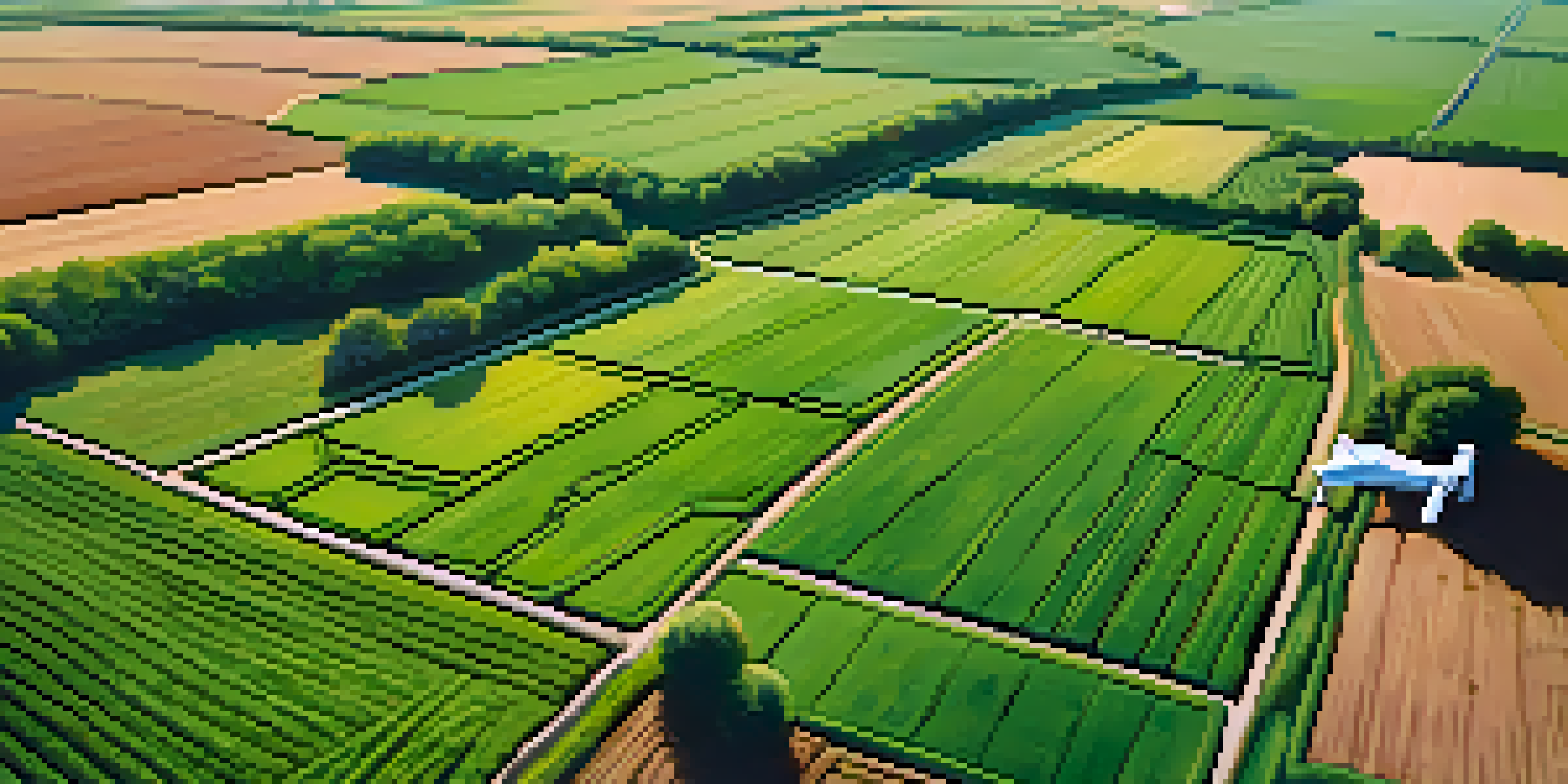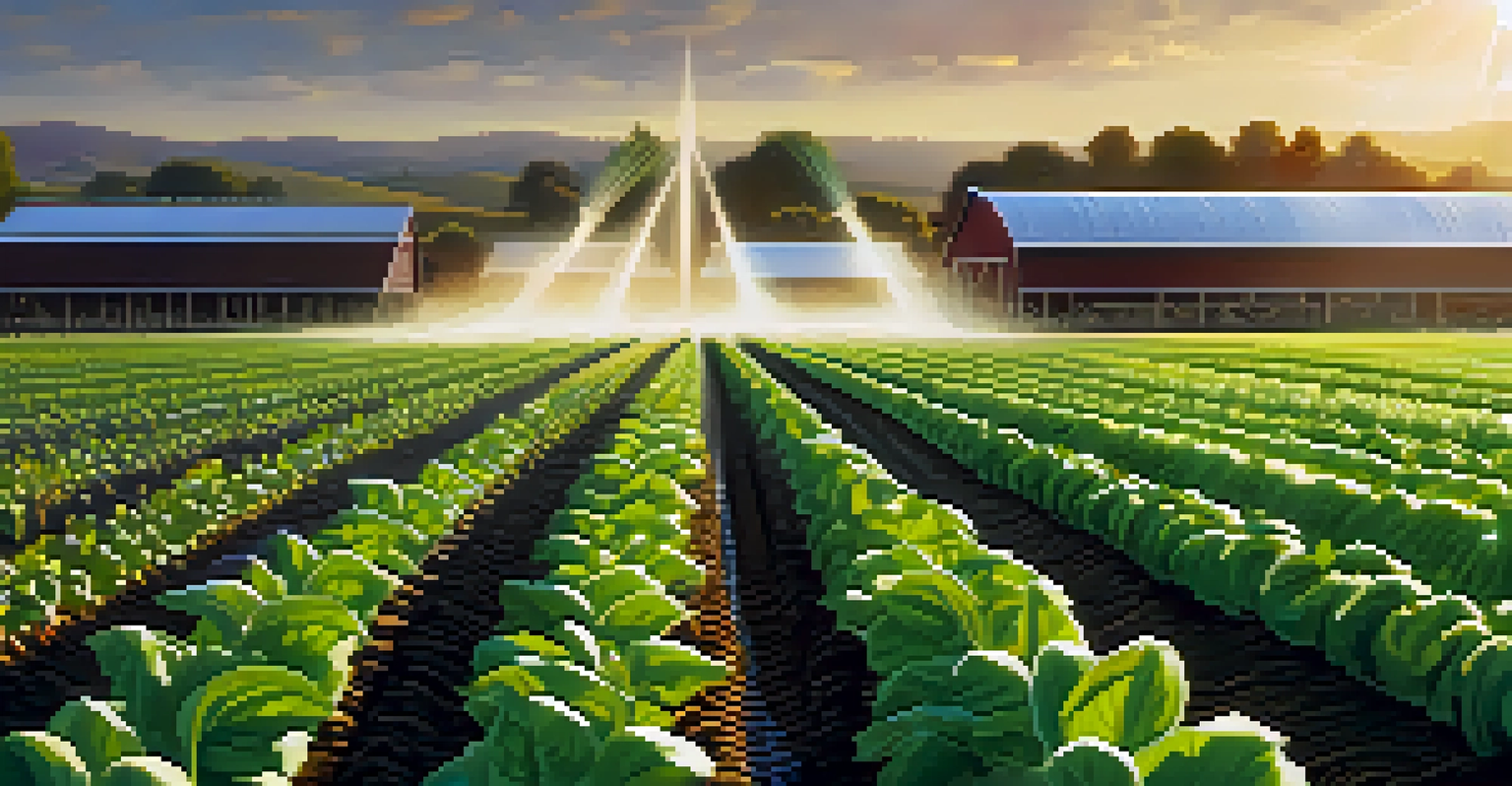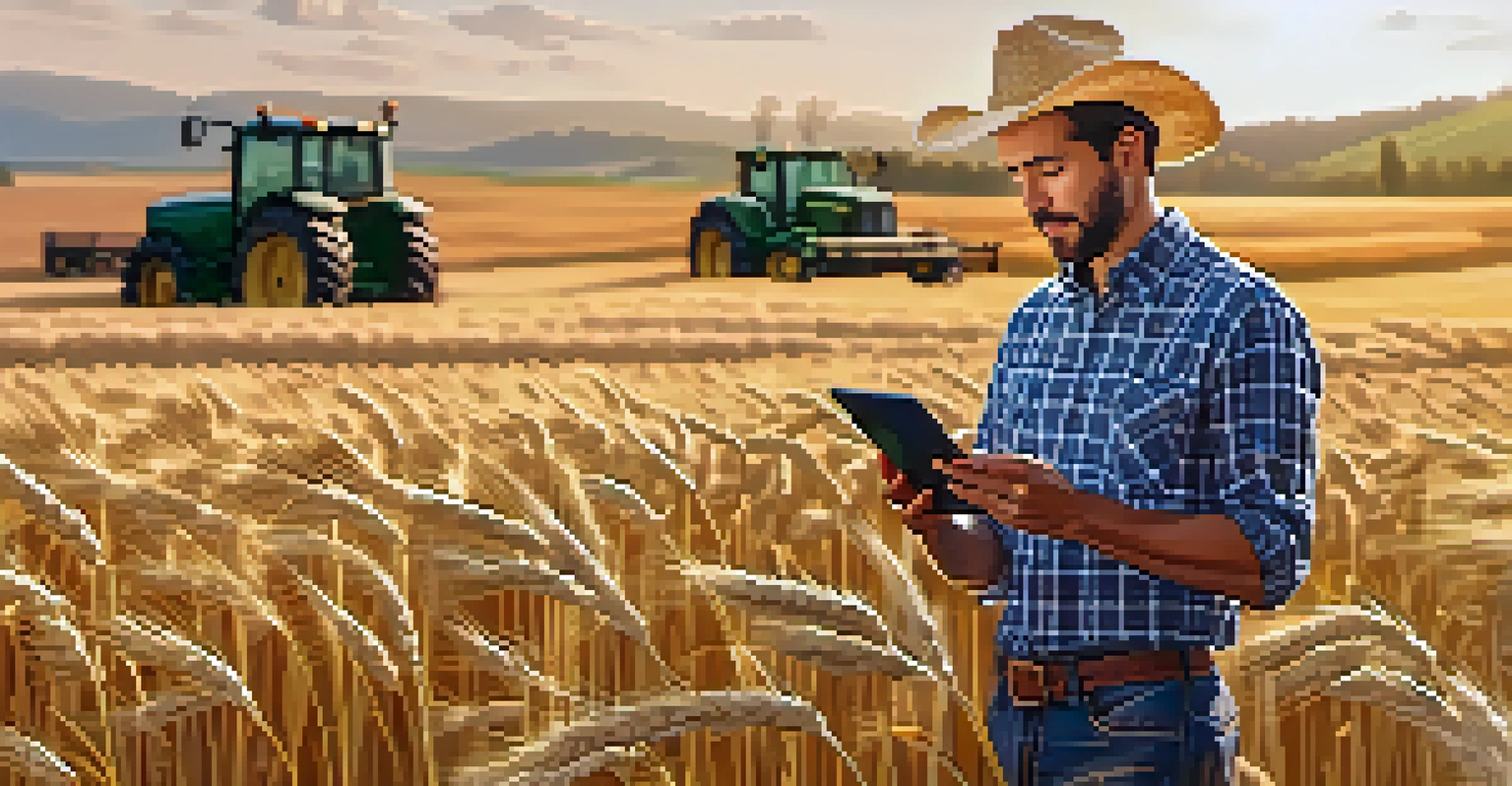The Role of Technology in Modern Illinois Farming Techniques

Introduction to Modern Farming in Illinois
Farming in Illinois has come a long way from its traditional roots. Today, technology plays a pivotal role in shaping how farmers cultivate their land and manage their crops. From advanced machinery to innovative software, these tools help farmers increase efficiency and yield while reducing environmental impact.
The future of agriculture is not about the technology itself, but about how we use it to improve the lives of farmers and the health of our planet.
The landscape of Illinois farming is changing rapidly, and it's essential to understand the driving forces behind this transformation. As farmers face challenges like climate change and fluctuating market prices, technology offers solutions that were unimaginable just a few decades ago. This dynamic environment is not only about survival but also about thriving in a competitive market.
In this article, we will explore various technological advancements that are influencing modern farming techniques in Illinois. By delving into specific examples, we can better appreciate how these innovations are reshaping the agricultural landscape and what they mean for the future of farming.
Precision Agriculture: A Game-Changer
Precision agriculture is at the forefront of modern farming practices in Illinois. This approach utilizes GPS technology and data analytics to optimize crop production and resource usage. For instance, farmers can now apply fertilizers and pesticides more effectively, targeting specific areas of their fields based on real-time data.

The benefits of precision agriculture extend beyond just increased efficiency; they also lead to more sustainable farming practices. By minimizing waste and reducing chemical runoff, farmers are not only saving money but also protecting the environment. This method of farming aligns with the growing demand for eco-friendly practices among consumers.
Tech Revolutionizing Illinois Farming
Modern technologies like precision agriculture and drones are significantly enhancing efficiency and sustainability in Illinois farms.
As more farmers adopt precision agriculture techniques, the overall productivity of Illinois farms is expected to rise. This shift not only enhances profitability for farmers but also contributes to food security in a world where population growth continues to strain resources.
Drones: Eyes in the Sky for Farmers
Drones have emerged as an invaluable tool for farmers across Illinois, providing aerial views of fields that were previously difficult to obtain. With the ability to capture high-resolution images, drones help farmers monitor crop health, assess irrigation needs, and even detect pest infestations early on. This real-time data allows farmers to make informed decisions quickly.
Sustainable agriculture is an approach that can help feed the world while protecting our resources for future generations.
Moreover, drones can cover vast areas in a fraction of the time it would take for a farmer to do so on foot. This efficiency not only saves time but also reduces labor costs. Imagine being able to spot issues before they escalate into major problems; that's the power of drone technology in agriculture.
As drone technology continues to evolve, we can expect even more sophisticated applications in the farming sector. From planting seeds to spraying crops, the possibilities are endless, and many Illinois farmers are excited about the potential to enhance their operations.
Smart Irrigation Systems: Conserving Water
Water conservation is a critical issue for farmers in Illinois, especially in times of drought. Smart irrigation systems are addressing this challenge by utilizing sensors and weather data to optimize water usage. These systems ensure that crops receive the right amount of water at the right time, reducing waste and promoting healthier plants.
By implementing smart irrigation, farmers can significantly lower their water bills while also contributing to sustainable water management practices. This not only benefits their bottom line but also helps preserve vital water resources for future generations. It's a win-win situation for both farmers and the environment.
Data-Driven Decision Making
Farmers are leveraging data analytics to optimize crop production and adapt to changing environmental conditions.
As technology continues to advance, we can expect to see even more innovative solutions in water management. With the growing importance of sustainability in agriculture, smart irrigation systems are likely to become a standard practice in Illinois farming.
Data Analytics: Making Informed Decisions
In the age of information, data analytics has become a cornerstone of modern farming in Illinois. Farmers are now able to collect vast amounts of data from various sources, including weather patterns, soil conditions, and crop performance. Analyzing this data enables them to make informed decisions that can significantly impact their yield and profitability.
For example, farmers can use data to determine the best planting times, select the right crop varieties, and identify potential risks. This level of insight allows them to optimize their operations and adapt to changing conditions. It's like having a crystal ball that provides clarity in an otherwise uncertain environment.
As more farmers embrace data analytics, we can expect a shift in how agriculture is practiced. This trend not only enhances individual farm productivity but also contributes to the overall resilience of the agricultural sector in Illinois.
Sustainable Farming: Balancing Technology and Nature
Sustainability is more than just a buzzword; it's a guiding principle for many modern Illinois farmers. Technology is playing a vital role in promoting sustainable farming practices that balance productivity with environmental stewardship. By using precision agriculture, smart irrigation, and organic farming techniques, farmers are finding ways to protect the earth while feeding the growing population.
For instance, integrating cover crops into farming practices enhances soil health and biodiversity. The use of technology to monitor and manage these practices ensures that farmers can maintain high yields without compromising the integrity of their land. This holistic approach is crucial in addressing the challenges posed by climate change and resource depletion.
Sustainability at the Forefront
Sustainable farming practices are increasingly essential, balancing productivity with environmental stewardship through innovative technologies.
Ultimately, sustainable farming is about creating a resilient agricultural system that benefits both farmers and the environment. As technology continues to evolve, it will be interesting to see how these innovations further contribute to sustainable practices in Illinois.
The Future of Farming: Embracing Innovation
Looking ahead, the future of farming in Illinois is bright, thanks to the ongoing integration of technology. Farmers are increasingly embracing innovative solutions that enhance their operations and promote sustainability. With advancements in artificial intelligence, machine learning, and robotics on the horizon, the possibilities for modern farming are expanding.
As new technologies continue to emerge, farmers have the opportunity to streamline their processes, reduce costs, and improve crop quality. This embrace of innovation is essential for staying competitive in a rapidly changing agricultural landscape. It’s a journey of continuous learning and adaptation.

In conclusion, the role of technology in modern Illinois farming is transformative. By leveraging these advancements, farmers are not only improving their livelihoods but also paving the way for a more sustainable and efficient agricultural future.